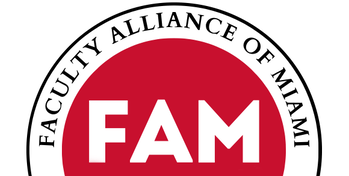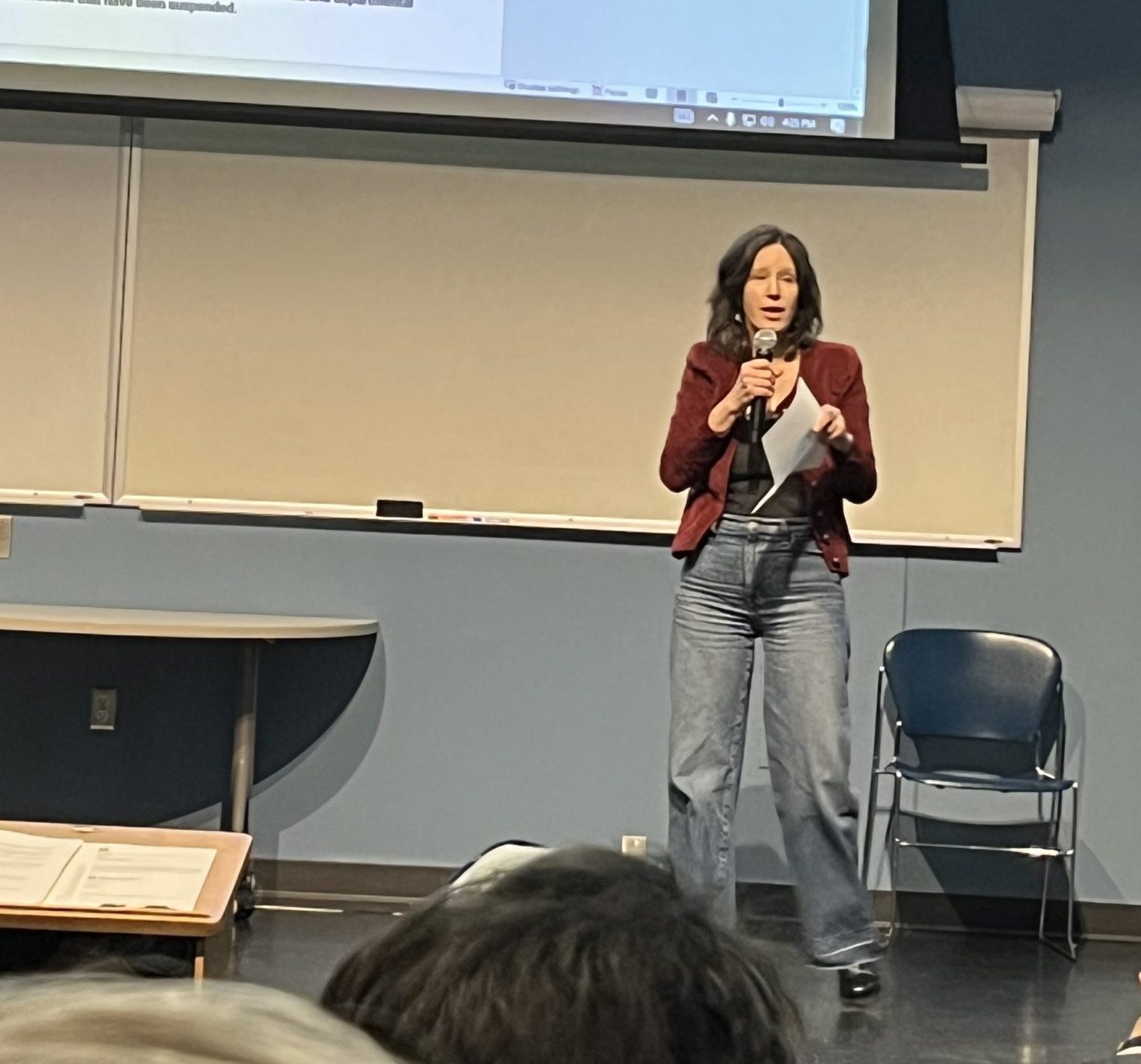Hello colleagues, I’m Cathy Wagner, professor from the English Department. I am a three-term member of Senate, currently serving as elected member at large, and a former elected member of the All-Faculty Committee for Evaluation of Administrators. I’m also a proud organizer for the Faculty Alliance of Miami.
First, I know you all have many things to do right now. You are right to have prioritized being here and I congratulate you on that decision. Having a channel for feedback on administrators is valuable and important and a reasonable thing to expect to have. Having a voice that matters in your workplace is valuable and important and a reasonable thing to want. I encourage you to persist in demanding it. Holding space together is a powerful way to do that. Together, you are powerful.
We are here today to talk about reinstating the All-Faculty Committee for Evaluation of Administrators, an elected committee of Faculty Assembly that’s not allowed to do its job right now. Let’s talk about what seems to be the main justification for suspending the committee: the argument that the committee’s work offers the potential for direct dealing.
What is direct dealing? Direct dealing is used to describe a situation where the employer (a supervisor, department head, et cetera) deals directly with an individual concerning that individual’s terms and conditions of employment, instead of dealing with the employee’s collective bargaining representative.
“There’s no legitimate reason why this committee cannot operate.”
There are many reasons why this committee can’t be described as doing direct dealing:
- The committee is not the employer. The committee consists of 7 elected members of Faculty Assembly. Faculty Assembly consists of tenure-track and tenured faculty, TCPL, and librarians. The communication happening is not employer to employee or vice versa, so it can’t involve negotiation. We’re talking about a group of employees surveying other employees to gather feedback on those above them.
- The committee does not deal directly with any individuals. It collects numerical and written feedback via an anonymous form, summarizes it in a report, and submits the report. And it submits only a report — it makes no recommendations.
- The committee does not do any “dealing,” or negotiating, and it doesn’t enable a channel for that. Even if a faculty member were to complain about compensation in the report, that does not mean direct dealing is happening. If a faculty member complains about their salary or working conditions in the presence of an administrator, does that count as direct dealing? Absolutely not. If you all stood up right now and said “We deserve our two percent raise!” — as of course you do — that would not be direct dealing unless the provost started negotiating with you, directly, about it, rather than taking it to the bargaining table.
- Finally, the university, despite requests, has not given us any specific instances of direct dealing they are concerned about. I’ve been on this committee, and there’s nothing on the survey that should raise alarms about direct dealing. If there were cause for concern — there’s not, but IF there were — the question that caused concern could simply be changed. The committee updates the survey annually with input from the provost and the administrator being evaluated.
In short, there’s no legitimate reason why this committee cannot operate — right now, during bargaining, this academic year.
We’ve sought the advice of FAM’s lawyer and the AAUP on this issue, and neither see any reason why the committee should not continue to operate. AAUP has operated since 1915 and its researchers could find no precedent at other unionized schools for the suspension of shared governance committees that’s happened here. Nobody else does this.
AAUP “researchers could find no precedent at other unionized schools for the suspension of shared governance committees that’s happened here. Nobody else does this.”
The sole reason the committee is not moving forward with its work right now is because the Board has declared—without any reasonable justification—that it cannot. This decision by fiat is an unprecedented and troubling interference with shared governance at Miami, and we should not let it set a precedent. The Board has the power to “unpause” the committee immediately and that is what it should do.
A strong organization is made stronger when it seeks constructive feedback from all its stakeholders. I am speaking up today because I love this school, its students, and its tradition of shared governance. We all want a stronger Miami. Let’s get there together. Miami management, we ask you to work with us, not against us!


Leave a Reply